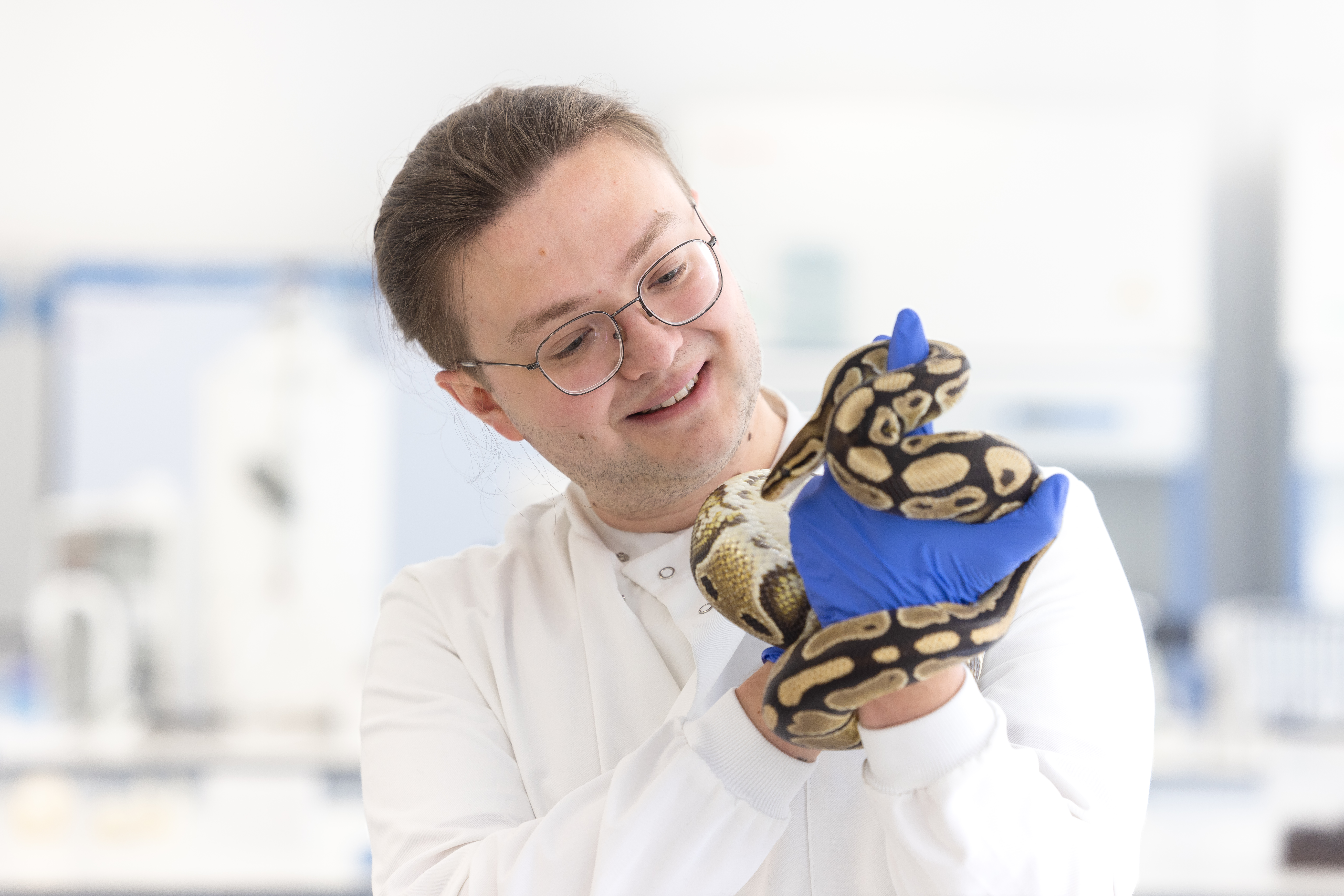Zoology is a Natural Path Into Conservation for Lewis
Lewis gives us an exciting view of what it is like to study Zoology and shares how he has made his dream career in conservation a reality at Chester.

Hello! My name is Lewis and I have recently graduated with a BSc Hons Zoology from the University of Chester. I am now continuing my research from my third-year undergraduate dissertation project as a Master's by Research degree (MRes Biological Sciences 2025-2026).
I’d like to tell you a bit about my journey.
Why I Chose Zoology?
It took me a few years after finishing my studies at college to decide that I wanted a career centred around animals and conservation. However, after studying unrelated subjects previously, I felt unsure as to how to pursue this field. After doing some research, the University of Chester BSc Zoology course stood out to me greatly for its diverse module selection, the connections between the University and Chester Zoo, the opportunities to perform laboratory work, and the ability to study abroad. Having the opportunity to begin my degree with a Foundation Year also meant that I was able to learn the fundamentals of wildlife biology and conservation before starting my undergraduate degree, which put me in a stronger position to make a success of my course.
What Can You Expect?
The course has a lot to offer, from great modules to continuous support from lecturers and staff during lectures and assessment periods. In years two and three, some of my personal favourites were the modules I completed on Animal Disease and Wildlife Crime and Conservation Genetics. There are plenty of opportunities to perform laboratory work and to work in the field, especially in year two, with the modules available to do field work abroad in countries such as South Africa.
University and Its Challenges
University can present various challenges, such as the need to study and complete assignments for different modules throughout the academic year. Finding a life-to-study balance can be difficult; however, it is also required to stop you from feeling burned out. I found the best way for me to study was to begin planning for an assessment early and writing a physical deadline timetable to help me visualise and plan my time better. The lecturers also provide plenty of materials to assist you in your assessments, making the process as smooth as possible.
My Dissertation and Why I Chose to Continue My Studies
I chose my dissertation topic at the end of year two and selected the topic of researching thermal plasticity in damselfly larvae. I made this decision purely because thermal plasticity was something I had never heard of before, and I thought the subject seemed interesting. The dissertation process consisted of collecting damselfly larvae from a forest and running laboratory tests on them, releasing them back where they were collected from, analysing the data collected, and then writing a manuscript about the study. Through this process and researching similar studies, I gained a massive fondness for the subject and thoroughly enjoyed writing my dissertation. Upon completing my dissertation, I realised I wanted to continue my studies and applied for a Masters by Research (MRes) in Biological Sciences, which is allowing me to expand on my research from my dissertation on a larger scope and to narrow my career path towards entomology and conservation.
My Advice for Those Wanting to Study at the University
My main piece of advice is to optimise your time as effectively as possible by attending all lectures and any optional revision sessions, completing any additional reading provided by your lecturers and making use of the facilities on campus, such as the Seabourne Library. Another takeaway I have is not to feel dissuaded if you ever feel uncertain about your preferred career path during your undergraduate degree. For me, I did not fully know what career I wanted to pursue until I began my dissertation in Year three, whereas some of my friends on the Zoology course knew what they wanted to pursue from year one. Between speaking to your peers and lecturers, meeting with the Careers Team, and selecting the optional modules that speak to you the most, your career path will come to you naturally.
Learn More
To learn more about Zoology at the University of Chester, visit our webpage at BSc in Zoology.